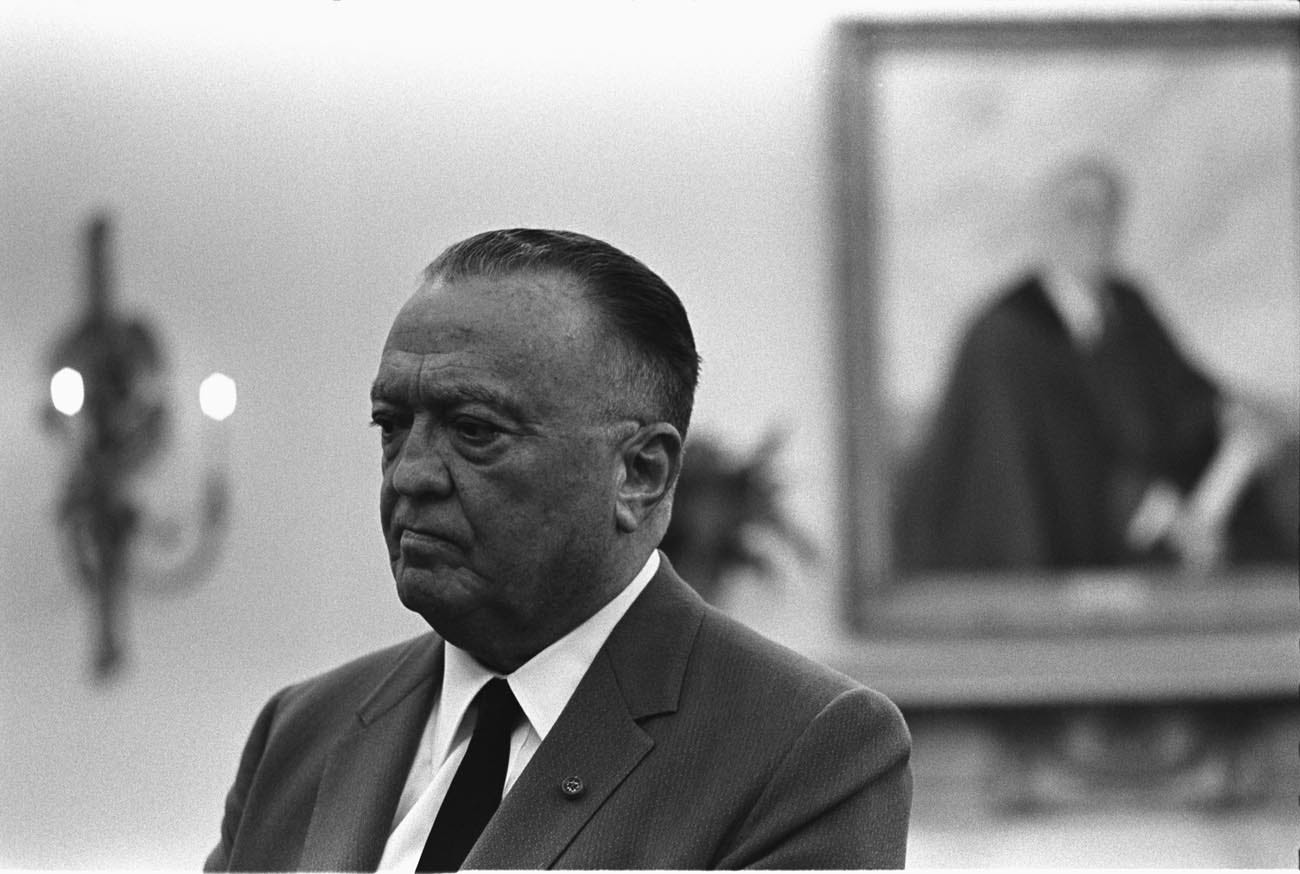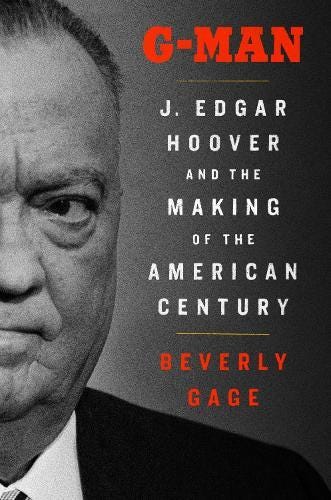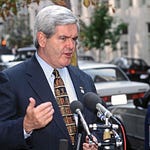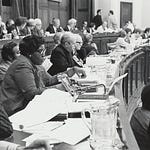
In this episode, I talk to Yale University historian Beverly Gage about her new biography of J. Edgar Hoover, just out from Viking Press, "G-Man: J. Edgar Hoover and the Making of the American Century." A meticulously researched and beautifully written book over ten years in the making, “G-Man” has already received praise from readers as different as Harvard historian Jill Lepore and former FBI Director James Comey. Looking for a holiday gift for that special political junkie in your life? Read a review here.
Program notes:
The opening clip is from a newsreel that features FBI Director J. Edgar Hoover testifying before the Senate Crime Investigation Committee in January 1951. You can listen to the full clip here.
Claire mentions earlier biographies of Hoover: Richard Gid Powers, Secrecy and Power: The Life of J. Edgar Hoover (Free Press, 1987); Athan Theoharis, From the Secret Files of J. Edgar Hoover (Ivan R. Dee, 1991); and Curt Gentry,
J. Edgar Hoover: The Man and the Secrets (W.W. Norton, 2001).
The FBI has established its own site about J. Edgar Hoover. You can look at Hoover’s own FBI dossier at the FOIPA digital reading room, The Vault.
Beverly mentions Hoover’s enormous popularity with Americans: in 1954, a Gallup poll affirmed this. Jack Levy’s review of G-Man: J. Edgar Hoover and the Making of the American Century in The Atlantic (November 22, 2022) picks up on this point.
Claire and Bev discussed the files on influential Americans that Hoover kept in his office, which were said to give him enormous power over elected officials. You can learn more about this history by watching “The Secret Files of J. Edgar Hoover Film,” directed by Jerry Kupcinek, available on Turner Classic Movies.
Beverly generously mentions Claire’s work on the FBI, War on Crime: Bandits, G-Men, and the Politics of Mass Culture (Rutgers, 1998) and “Queer Hoover: Sex, Lies, and Political History,” Journal of the History of Sexuality, vol. 15 no. 3 (September 2006).
Hoover may or may not have blackmailed the subjects of those files, but he did keep an “enemies list.” You can learn more about this in a February 14, 2012 episode of NPR’s Fresh Air.
Beverly makes the point that Hoover sometimes investigated extremists on the right such as the John Birch Society. Did you know that the JBS not only still exists, but is thriving in the current political climate? You can read more about the organization and its history in Edward H. Miller, A Conspiratorial Life: Robert Welch, The John Birch Society and the Revolution of American Conservatism (University of Chicago Press, 2022.)
The Kappa Alpha fraternity, which shaped Hoover’s young manhood and encouraged his racism, also became a resource for recruiting G-Men. It still exists, and you can read more about its history here.
In discussing Hoover’s sexuality, Beverly discusses the “Lavender Scare,” the purging of homosexuals from government jobs, which began during World War I and escalated in the 1950s. David K. Johnson has wrotten a book about this episode, The Lavender Scare: The Cold War Persecution of Gays and Lesbians in the Federal Government. At Notches blog, Christopher Elias has also written about “J. Edgar Hoover, the FBI, and the “Sex Deviates” Program.” (June 21, 2016) Journalist James Kirchuck also warns that homophobia is homophobia, even when directed at Hoover. (Politico, February 13, 2019.)














Share this post